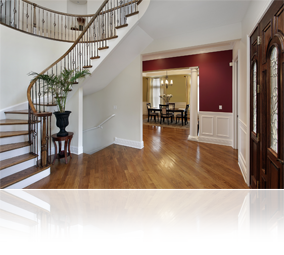Shopping for a home is a little like shopping for a car. Unless you know what to look for, you risk being swayed by first impressions and buying something that does not truly meet your needs.
For example, you might fall in love with the recreation room and unconsciously overlook the fact that the home doesn’t have enough bedrooms to accommodate your growing family.
So when you’re viewing a potential new home, make sure the home meets your needs.
Here are some questions to ask yourself:
- Is there enough room for my family, now and in the future? Remember, as kids grow so does the space they require!
- Are there enough bedrooms, bathrooms, closets and storage space?
- Is the yard big enough?
- Will my furniture fit the space?
- Do I like the community? Always take a walk around and explore the area.
- Does anything need to be repaired or replaced? If the seller won’t be taking care of such issues, repairs or replacements could add thousands of dollars to the true cost of buying the property.
Don’t be afraid to ask lots of questions when viewing a home. After all, it’s a major purchase. You want to get it right!
Need help finding homes to view that meet your requirements? Call today.









